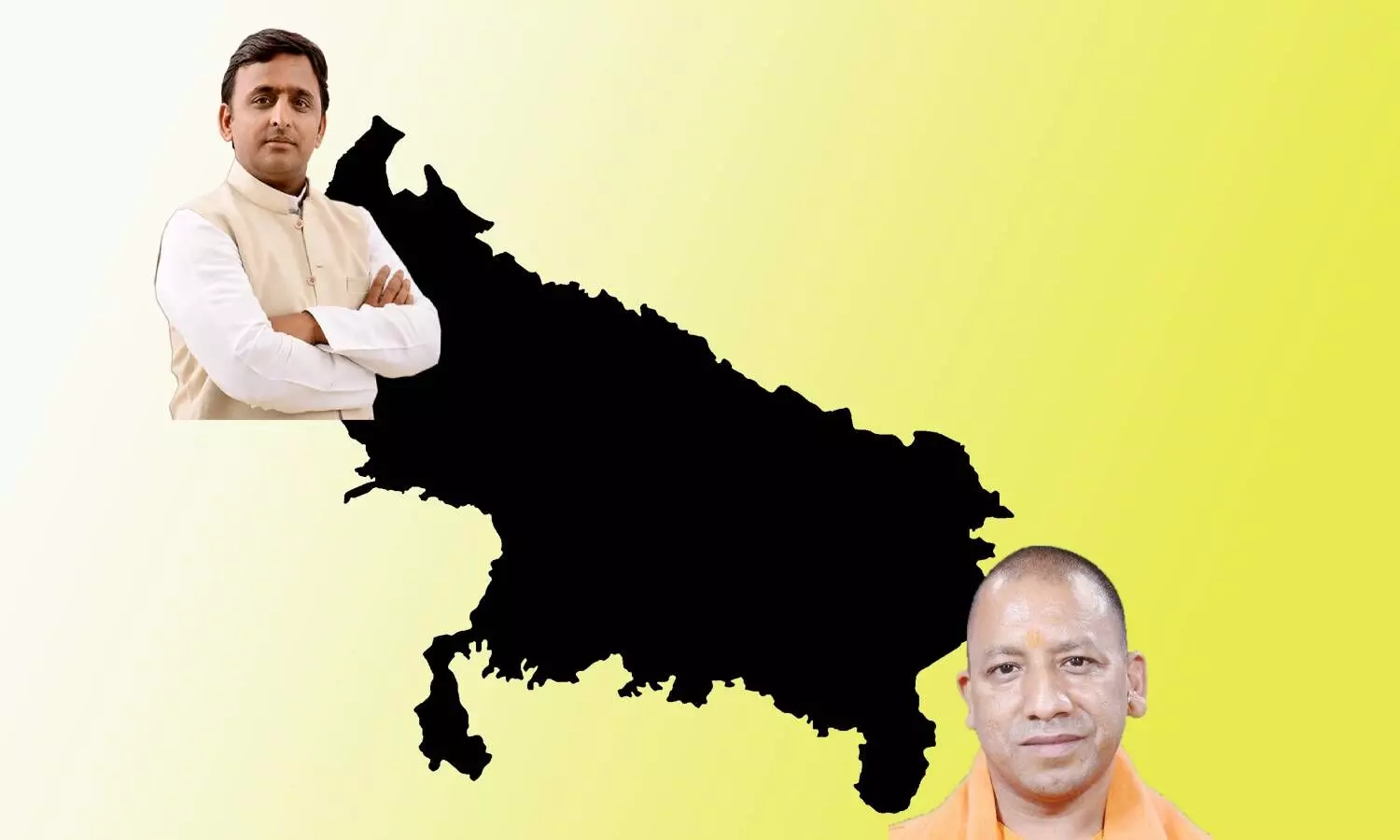UP elections: Can SP take on BJP?
As electioneering in the poll-bound state warms up, the question uppermost in everyone's mind is what is the Muslim frame of mind, the inclination of the Dalit voters and the outlook of the masses towards the ruling dispensation?
By J.S. Ifthekhar
Hyderabad: The spotlight is on Uttar Pradesh, although four other states are also going to polls. The reason is not far to seek. Stakes are pretty high for the BJP here after it drew a blank in West Bengal. The recent desertion of several ministers and MLAs from the saffron party seems to have presented it with a fait accompli. The party must retain power to salvage its reputation. For other contenders too, winning the UP elections is important for the larger political ramifications it may have for the country as a whole.
As electioneering in the poll-bound state warms up the question uppermost in everyone's mind is what is the Muslim frame of mind, the inclination of the Dalit voters and the outlook of the masses towards the ruling dispensation? With the UP Chief Minister, Yogi Adityanath, throwing in the "80 per cent versus 20 per cent" challenge, communal polarisation is high on the cards. Muslims, who account for 19 per cent of the population, have become an important factor in this election. The entry of All India Majlis-e-Ittehadul Muslimeen (AIMIM) into the UP electoral scene has set the proverbial cat among the pigeons. Its president, Asaduddin Owaisi, is out to draw minority votes away from the traditional claimants like Congress, Samajwadi Party, and BSP. The Majlis is not altogether a new entrant in this agrarian state. It contested 38 Assembly seats in 2017 – polling about two lakh votes. In Bihar also the AIMIM came a cropper in 2015 but in 2020 it wrested five Assembly seats. In UP, the party hopes to strike gold this time.
But political dynamics are different everywhere. The AIMIM may or may not win seats in Muslim-dominated constituencies where it is concentrating, but the very presence of Majlis, many feel, will result in greater polarisation and consolidation of Hindu votes behind the BJP, a charge that Mr. Owaisi stoutly denies. The Majlis, he says, is keen on creating leadership among Muslims whom the political parties are treating as their core 'vote bank'. While social groups like Jatavs, Yadavs, Rajbhars, and Nishads, who constitute a small part of the UP population, have their own leadership, Muslims who account for 19 per cent of the population, do not have any united leadership, a Majlis functionary says.
The recent developments show that elections in UP are set to go the West Bengal way. Ultimately it will boil down to a direct fight between the BJP and the SP as was the case in West Bengal where the Congress and the Left Front got marginalised and the ruling TMC found itself pitted against the BJP. With the exodus from the BJP continuing, the SP is gaining traction slowly and might emerge as the main challenger to the saffron party. Seizing the opportunity, its president Akhilesh Yadav is working to consolidate the Muslim community along with the large section of OBCs, including non-Yadav community voters. He is also trying to wean away the upper caste Hindu votes. This is a crucial factor and it may well define the electoral outcome in the state.
Political pundits feel that the SP will garner 70 per cent of the minority votes and 30 per cent of Dalit and OBC votes. This works out to a total of 41 per cent votes. As of now, the BJP is expected to get 50 per cent of the Hindu votes. Thus, the state is headed for a pitched battle between these two parties.
Though Muslims constitute 19.25 per cent of the total population in UP, they lag behind other socio-religious groups in education, economic, employment, housing, landholding, access to credit and other development indicators. Until the Sachar Committee revelations, the socio-economic and educational conditions of Muslims did not get due attention in terms of research and policy.
According to a study carried out by the Hyderabad-based Centre for Development Policy and Practice (CDPP), a variety of factors are responsible for the backwardness of the most populous state in the country. Historically, the British took more interest in developing western and southern India because of their proximity to ports and direct collection of land revenue from farmers. But the zamindars and taluqdars in UP showed no interest in developing physical and social infrastructure. For more than three decades, the state suffered from political uncertainty with President's rule imposed on eight occasions. What has made matters worse is 'patronage-centered politics', low capacity of local bureaucracy, poor accountability, lack of performance appraisal and lack of motivation to work for the poor. Large-scale leakages due to corruption add to the problem. Much of the development in UP is supply driven, top down, non-transparent, and does not involve people. "Uttar Pradesh epitomises all the ills afflicting Indian politics – corruption, criminalisation, clientelism, and patronage. To put it in one word, it is 'goonda raj', the study says.
Disclaimer: The views expressed in this article are the opinions of the author and do not represent the views of NewsMeter. We have not changed, added, or omitted anything to the text. NewsMeter is not responsible for the accuracy of the facts and the content of external links included in the article.